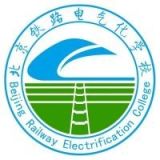What are the different types of research that are used in a college essay?

Answer:
Types of Research Used in a College Essay:
1. Analytical Research:
- Involves examining and analyzing existing data, theories, and evidence to identify patterns, trends, and relationships.
- Examples: critical thinking essays, research papers, analytical essays.
2. Empirical Research:
- Involves collecting and analyzing primary data, such as surveys, interviews, observations, and experiments.
- Examples: research projects, case studies, empirical essays.
3. Secondary Research:
- Involves reviewing and synthesizing existing research findings from other sources, such as books, articles, and reports.
- Examples: literature reviews, summaries, annotated bibliographies.
4. Primary Research:
- Involves conducting original research to answer specific questions or test hypotheses.
- Examples: research papers, dissertations, creative projects.
5. Argumentative Research:
- Involves developing a thesis statement, supporting it with evidence, and providing logical reasoning.
- Examples: persuasive essays, argumentative essays, research papers.
6. Comparative Research:
- Involves comparing and contrasting two or more groups or phenomena to identify similarities and differences.
- Examples: essays on cultural trends, historical comparisons, research papers on different species.
7. Case Study Research:
- Involves investigating a single individual, group, or event to provide a deep understanding of a particular phenomenon.
- Examples: biographies, case studies, ethnographies.
8. Meta-Analysis Research:
- Involves analyzing and synthesizing research from multiple sources to draw broader conclusions.
- Examples: meta-analyses of clinical trials, research on educational effectiveness.
9. Historical Research:
- Involves investigating past events, people, and societies to understand historical context and patterns.
- Examples: historical essays, biographies, research papers.
10. Creative Research:
- Involves generating new ideas, concepts, and solutions through non-traditional methods.
- Examples: poetry, fiction, design projects, research on artistic movements.



























































































